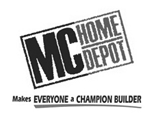Are you a student with a new idea for a killer website? Perhaps you are someone who wants to create your own foodie blog?
Thats means you will need a web host, among other things; a place to keep the code and content for your killer website or foodie blog. When you search for a web host, you will find several options; perhaps the first choice that will jump out at you is the shared hosting plan, mainly because it is among the cheapest plans, or it may even be offered for free.
At this point there might not be any question in your mind that shared hosting is the one to get, considering that you are just starting out, and I mean, come on, you can probably get one for less than five dollars. Before you sign up for that inexpensive (or free) shared hosting package, you might want to ask yourself, “What are the pros and cons of shared hosting?”
Let us look at what shared hosting means. On one physical server, there are many users to which the resources, whether hardware or software, are allocated. The physical server may have 32GB of memory, but out of that you get only 512MB, for example. There may be 2TB of storage space all in all, but you get only 1GB. Also there is only one server software for all the databases, and you get one or two databases, handled by that one database server, and your databases are just two among possibly one hundred on that machine. The hosting provider might tell you that you can consume up to 100GB of traffic per month, but you and all other users of that server share a single network port on the machine.
The above setup is not necessarily bad. It allows the hosting provider to distribute the cost of the machine among many clients, which is why they can offer the service on the cheap.
Now we can get to the meat of the matter. One major disadvantage of shared hosting is that if one or more users use a lot of network traffic or processing power, the rest of the users on that machine are likely to experience less-than-expected performance. Another thing to consider is that you will likely not be able to install additional modules which may be needed by scripts for your website. This may not be a big concern if your website is just basic HTML code, but if you want to run a website that uses a scripting language, this might be an issue.
For the advantages, the most obvious one is the low cost. This is very important if you are a student who just wants to try a pie-in-the-sky idea or if you are a hobbyist who simply wants an online presence to share information about your passion. The other advantage of shared hosting is that you do not need in-depth knowledge of managing a server, because the hosting provider takes care of the nitty-gritty of doing that. You just need enough knowledge to upload your site, create e-mail accounts and databases as needed, and for that purpose, the provider gives you a web-based control panel.
That’s it. I hope this was a good overview of what you get from shared hosting plans.
Sources/References:
http://www.awardspace.com/web-hosting/shared-hosting/pros-cons-to-shared-web-hosting
http://www.linux-depot.com/pros-and-cons-of-shared-hosting/
http://www.betterhostreview.com/pros-cons-shared-web-hosting.html
http://www.quora.com/What-are-different-pros-and-cons-of-using-a-shared-hosting-server-VPS-dedicated-hosting-server-and-a-cloud-server
http://www.domainmonster.com/editorials/shared_or_dedicated/
Our Web Development Clients and Accredited Partners

United Laboratories, Inc.

BioBalance Wellness Institute

MetaMetrics Laboratory

Mel Orlina Couture

Cambridge Child Development Centre

MC Home Depot

JB Music

JB Sports

Carenett Philippines, Inc.

Vitamin Factory

